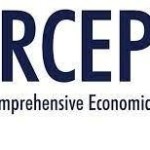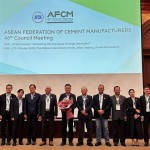Total number of posts 463.
Negotiations on this deal were initiated in May 2016 and took place in 6 official rounds, before reaching conclusion in August 2019.
ROK’s Trade Minister indicated that not only is the FTA focused on reducing tariffs or improving business environment but it also establishes a solid framework to build a foundation for the two countries to develop their economy by promoting cooperation in advanced industries. South Korea is the first country in Asia to sign an FTA with Israel, expecting this partnership will help the 4th largest economy in Asia utilise outstanding advantages in comparison with neighbouring countries like China and Japan. Meanwhile, Israel is the first country in the Middle East to sign an FTA with South Korea. The ROK’s Trade Minister also expressed her hope that Israel's source technologies and South Korea's industrial production strengths can induce a synergistic effect for both sides.
According to the Agreement text, Israel will eliminate 95.1% of tariff lines for imported products, while the respective number for South Korea is 95.2% of tariff lines. Israel’s import tax on Korean automobiles currently standing at 7%, together with a tax rate between 6% and 12% on automobile parts, will be removed immediately, helping to reduce this product price in Israeli market and contributing to reducing the living cost in Israel. These two groups of products accounted for 47% of Korea's export market share to Israel last year. The value of imported cars from South Korea prevails in Israel’s imported car market, accounting for 33% of Israel’s total car imports. In addition, other benefits that Korea receive as stipulated by the recently signed agreement include textile products and cosmetics, with tax rates of 6% and 12% respectively, will be eliminated. Other Korean export products that also enjoy Israel’s tariff cut include refrigerators, medical equipment, electronic components, toys and video games, plastic products, and chemicals. This agreement will help South Korea–the 12th largest economy in the world, the 4th largest in Asia and the 3rd largest trading partner of Israel in Asia - boost exports to Israel regarding automobiles, auto parts, and other goods, which are entitled to tax exemption, as soon as the agreement takes effect.
In return, South Korea will also eliminate 30% import tariff on Israel’s pomelos. Nonetheless, according to the South Korean Ministry of Trade, Industry and Energy, this tariff will be eliminated in stages within 7 years to gauge the reaction level from Korean farmers. Import tariffs on Israeli medical equipments, currently at 8%, will be removed within 10 years. South Korea, a global player in processor/memory cards manufacturing, also announced that it will immediately abolish tariffs on related equipments imported from Israel. Other Israeli exports to enjoy tariff cuts include electrical machinery and equipment, mechanical equipment, fertiliser, medical equipment, cosmetics, plastics, metals, juices and wines. The trade deal will, therefore, fuel a boost of Israeli exports to South Korea and further economic growth in Israel. In 2020, Israeli exports in goods and services to South Korea reached USD 890mi, whereas imports from South Korea surpassed USD 1.5bn. The majority of Israeli imports from South Korea comprised cars, most of which are Hyundai and Korean brands like Kia.
The new generation FTA also includes most-favoured-nation (MFN) and national treatment provisions applicable to investment projects of companies that do not have a presence in the other partner country, but will not be applicable to the territories of Palestine. South Korean workers permanently residing in Israel will be allowed to extend their residency in the Middle Eastern country for a limited period of 63 months. This Agreement also has a provision that the National Assembly of each country ratifies it before it comes into force. South Korea aims for early ratification for the agreement to come into force in 2021. Korea has been working to expand its FTA networks along with efforts to deal with protectionism and proximity, and more recently, an economic decline due to the impact of the Covid-19 pandemic. Currently, South Korea has FTAs with 17 countries and regions, including the US, EU, ASEAN... and a few FTAs that this economy has signed which are currently waiting for National Assembly's approval, including an agreement signed with Indonesia and Cambodia.
Currently, Israel is also in the process of in-depth negotiations with China, with efforts to conclude FTA negotiations with China before the end of 2021.














